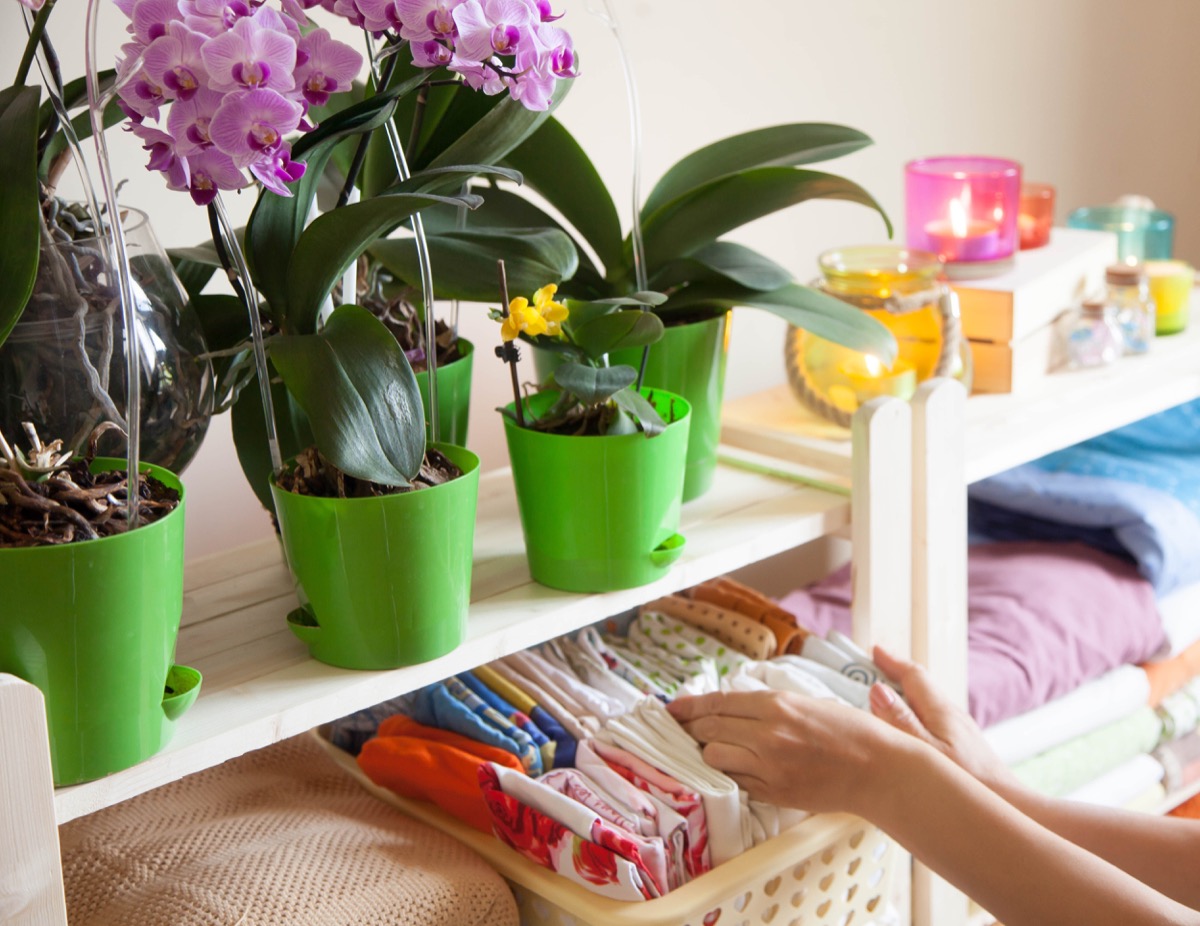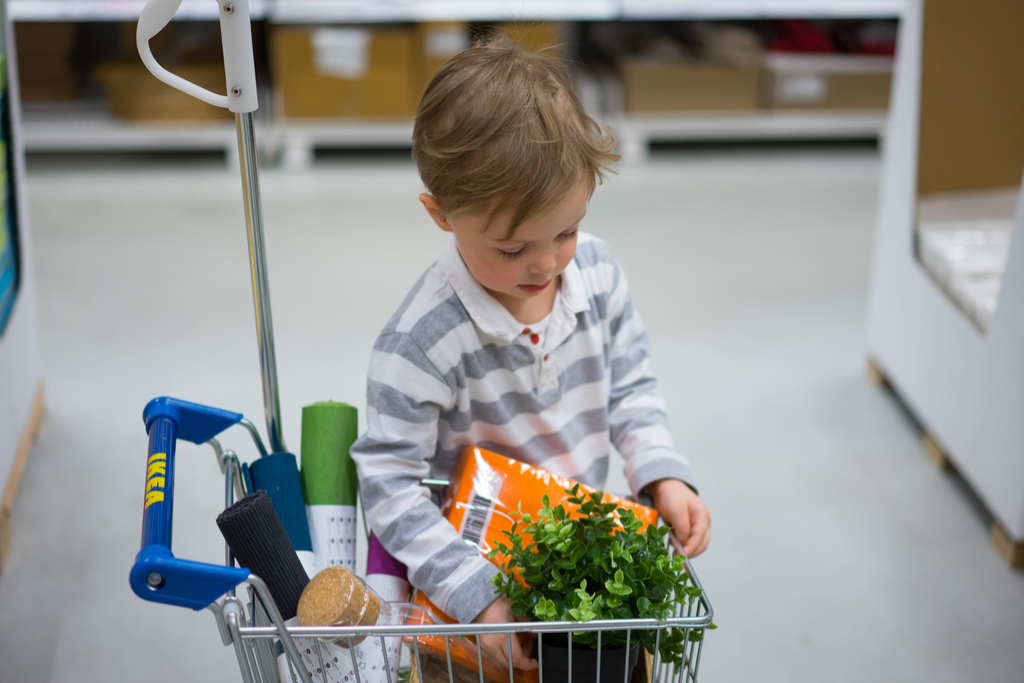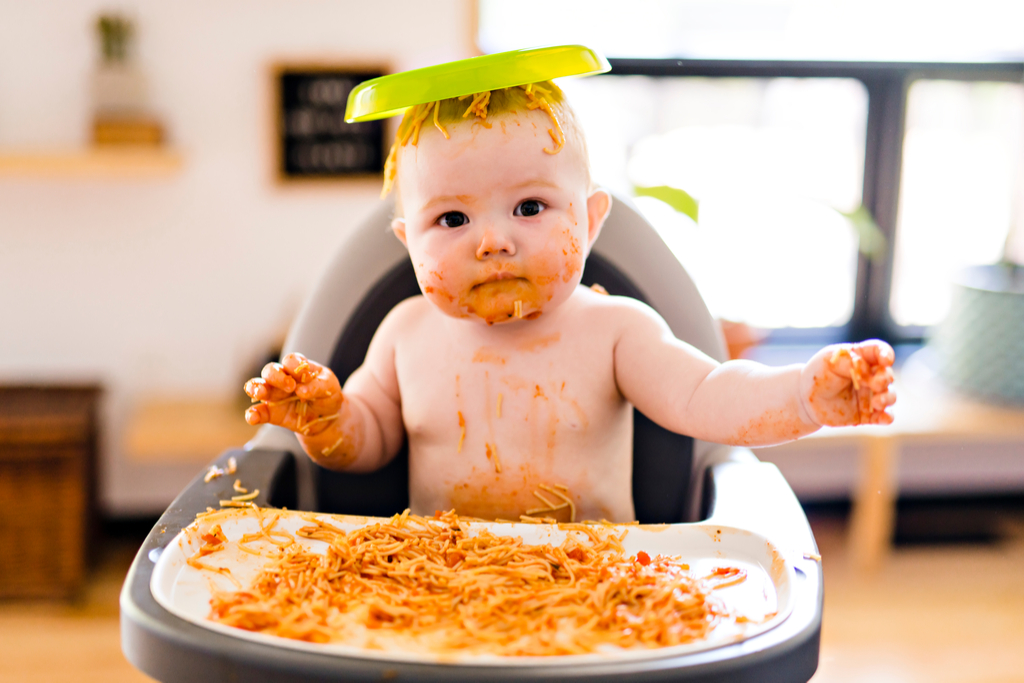23 Brilliant Ways to Be a Happier Parent

Parenting comes with a lot of wonderful moments: the first time your kid tells you he loves you. The first time you see your child take off on her bike. Any graduation. But parenting isn’t all rainbows and unicorns. There’s sleep deprivation. There are countless life-and-death worries. And don’t even get me started on how soul-crushing a child a new kid’s truth bombs can be. Sometimes, it can feel like “happy” and “parenthood” just can’t go together.
The thing is, parenting doesn’t have to feel like a burden. You get to write the rules for your family! You can choose what to pay attention to and what to let go of. And you can even choose your emotions—in which case, who wouldn’t choose happiness over constant anxiety? In that spirit, here’s a playbook to help inject some levity and joy to your life as a parent.
1
Put yourself first.

A happier parent starts by being a happier person. It’s not just okay to put yourself first—it’s essential. For every parenting decision you make, you need to be a key part of the equation. It’s not just a question of is this the best daycare or school for my child? It’s equally a question of how will the commute to this daycare or school work for me and my sanity?
Your own wellbeing is the foundation for the wellbeing of your family. So next time you are wondering if you ought to finally cash in on that massage gift certificate, remind yourself that you are doing it for the kids! And also that it’s okay to just do things for yourself.
2
Slow down.

One of the most common threats to parental happiness is speed. These days, everyone moves so quickly between work and home and children’s activities and family obligations—let alone any individual pursuits. Take a minute to slow your roll.
Maybe it’s a few minutes of meditation at the start of your day. Maybe it’s just turning off the background TV and really paying attention to a chore at hand (say, doing the dishes). Maybe it’s leaving screens out of the bedroom. No matter the strategy, find ways to adjust your pace. What you’ll lack in speed, you’ll make up for with greater peace.
3
Find a minimalism that works for you.

Enough with the stuff. It doesn’t matter whether you want to follow Marie Kondo’s approach to tidying your life or Myquillyn Smith’s approach to a cozy minimalist home, but you must find ways to eliminate all the stuff. If you can let go of your stuff, you can create more space (literally!) for things that bring you happiness.
4
Refuse what you don’t need.

When it comes to kids’ stuff, it’s wonderful to shop consignment and welcome in hand-me-downs from your neighbors. But just because something has a low ticket price doesn’t mean you should be less rigorous about bringing it into your house. Be ruthless. Unless you love it (or it brings you joy, like Kondo demands), leave it. The cost of the extra stuff isn’t often considered, but it’s real. If you can get into the habit of refusing to let excess into your house in the first place, then you won’t have to go through the emotional exercise of letting it go later yourself.
5
Borrow this corporate strategy.

Top-performing organizations don’t just have a dusty set of values hanging in a corporate board room. Values are actively used to inform thoughtful and strategic business decisions. And it’s easy to translate that pattern of thought to your home life.
Pick three to five words that really embody what matters most to your family. Maybe it’s adventure, play, and learning. Maybe it’s expansion, freedom, and tradition. Maybe it’s stability, challenge, and balance. The only rule is that the values you select are meaningful to you and your family. Then, live them every day. And if your kids are old enough to join in the fun, by all means invite them to participate.
6
Let your values guide big decisions.

Decisions, decisions, decisions. As a parent, it can sometimes feel like you have two dozen decisions to make before you even finish your first cup of coffee. And some of those decisions can feel insurmountably large. Do you enroll your kindergartner in your local elementary or a charter bilingual school? The charter location means a bus ride instead of a walk across the street. But you know the stats on language acquisition for young people…
Once you know what matters most to your family—by identifying those three key words—you can make decisions with greater ease. You no longer have to worry about what anyone else has to say, you can follow your own priorities. This clarity builds confidence and prevents you from getting overwhelmed.
7
Let routines eliminate micro-decisions.

Don’t reinvent the wheel where you don’t have to. Establish routines for yourself and your whole family. Spend 10 minutes writing down the usual flow of your average family day. Spend another 10 minutes highlighting parts of the day that work really well. Then spend 10 minutes calling out places that are major pain points. Ask yourself where a routine might really help alleviate the headaches in your everyday. How you might amplify the routines that are already really working?
Personally, my husband and I both enjoy a fair amount of flexibility with our work schedules. As a result, we used to decide every day who would drop off and pick up our kids from daycare. At worst, this led to a lot of mad dashes and frustration due to last-minute schedule changes. At best, it led to the same decision-making conversation every day. When we shifted to a set schedule (which we could then adapt with clear requests as needed), it maximized sanity for us and our kids, who liked to know who would be where and when. Win-win-win.
8
Don’t take on more responsibility than you need.

I’ll never forget dropping my daughter off to her pre-K–4 classroom and realizing her backpack was still in the car. “I’m so sorry, I left her backpack in the car,” I said on instinct. My daughter’s sage teacher immediately correctly me, “You mean, your daughter left her backpack in the car.” She then knelt down and spoke to my 4-year-old about her backpack responsibility and told her to make sure to bring it in the next day.
Sometimes your own desire to get things done faster (e.g., putting on a kid’s shoes or zippering their coat) or better (e.g., rewriting that AP English paper) leads you to take on more responsibility than necessary. So give yourself a break and be clear about what your job is—and what it is not.
9
Give your kids age-appropriate jobs.

Kids thrive when the can succeed—and teamwork really does make the dream work. So start small. My near 2-year-old can clear his (non-breakable enamelware) cereal bowl. My 4-year-old can set the dinner table. My 6-year-old can clean up the shared bedroom all by herself.
Sure, some of these things are easier or faster for the parent to do. But then you’re creating the shared expectation that, when something needs doing, you’ll just do it. Start delegating now and let the rewards pile up over the long haul.
10
Play with your kids

Parents need play just as much as kids do. But somewhere along the way to adulthood, it’s easy to forget to play. Let your kids remind you how! Put your phones away and just follow your kids’ lead. Bust out a good old-fashioned board game. Reimagine scraps of fabric into a pirate costume. Get lost in building a LEGO village. Let your heart be light and happy and just have fun.
11
Find your parenting community.

One of the great things about becoming a parent is making new friends. Some of my dearest friends today are the people I met when I was a brand-new parent trying to figure out the basics of keeping a newborn alive and my own sanity along with it. Surround yourself with people who also understand the season of life that you are in. Bonus points if their kids get along with yours. It makes for easy gatherings for the whole family.
12
Keep your kidless friends.

As much as you need people who understand your context, don’t fall into the trap of drifting away from the non-parents in your life. These are the friends who both respect that things are changing for you and also see you as more than just a parent. They tend to be excellent at reminding you of what’s fun and demonstrating that you really can have meaningful conversations that don’t involve any discussion of the little people in your life. You really are your own person—and your childless friends are good reminders of that.
13
Do things alone.

As much as community is good, so is alone time. Sometimes that can be the less glamorous things like going grocery shopping without your kids underfoot. And it should absolutely include some fun excursions too. Go to the movies or a museum. Take a skiing lesson. Treat yourself to a massage. Spending time alone will give you some much-needed recuperation. And chances are, you’ll be more excited to jump back into the parenting fray when you head home.
14
Keep moving.

Find ways to keep moving. And remember it’s a priority not just for your physical wellbeing, but for your happiness. Exercise releases happiness-inducing endorphins, giving you the energy and momentum to keep going. So whether you want to run a few laps while waiting for your daughter to finish soccer practice or you can carve out time after lunch for a 20-minute walk, be sure to prioritize physical movement.
15
Eat well.

Yes, you’ve heard it a million times, but what you put into your body really does impact your mood. And, when it comes to eating healthy, parents have it especially tough. You’ve got increased demands on your time, and sometimes convenience foods are too helpful to ignore. Or maybe you have gotten into the habit of consuming the remaining mac and cheese off your kids dinner plate. (Been there, done that.)
If you find that your eating habits have taken a hit, find simple ways to bring more ease back. Stock the house with healthy, easy to prepare foods. Store quick nutritional fixes in the car. And even consider working with a nutritionist to create a plan that works for you.
16
Reset your expectations.

Changing your own perspective can go a long way to welcoming in more happiness. I know, for myself, I have a certain way that I like things to be when guests come to stay. Even though bread crumbs on the counter are fine when it’s just the immediate family, when a loved one comes to stay, my inner clean freak shows up. I drive myself nuts trying to create an existence that just isn’t our present reality.
By letting go of your own self-imposed standards, you can do a lot to ease any anxieties. For me, it took a regular house guest coming for a few days every month to finally stop worrying about things. It was regular enough that I had to let go. And thank goodness for those repeated visits. They’ve allowed me to finally let friends and family come visit without panic setting in at the get-go.
17
Embrace change.

Bar none, the best parenting advice I’ve ever received was this: The one thing you can really count on with kids is that things will keep changing. That means when things are good, you can really appreciate it. And when things are not so good, you can trust that these times too shall pass. Rather than fight against change, just welcome it in.
18
Embrace chaos.

Parenting and life with kids comes with it’s own set of chaos. Rather than fight it, think about the upside of the chaos. (Yes, I’m serious!) You may have never imagined you’d develop the skill of carrying a phone under your chin while also holding two kids on your hips, while a third child screams at the top of her lungs, all while you’re stirring a pot with the dinner contents everyone is anxious to eat.
But you also probably didn’t imagine cuddling in bed, enjoying your Sunday morning coffee, surrounded by your sweet kids who are just as interested in that design book as you are. It’s chaotic, yes. But it’s a beautiful chaos—and it’s your beautiful chaos. Embrace it.
19
Build a team.

As an entrepreneur, I was told to build a team. But the same set-up is needed for a parent. On my parenting team, you’ll find teachers, doctors, landscapers, house cleaners, babysitters, summer camp counselors, ice-skating instructors, and more. Having a team doesn’t have to come at a high cost either. Form a babysitting co-op. Trade services. But do recognize that you can’t do everything yourself. And learning how to delegate is critical to happiness.
20
Consider the role of lead parent.

Ever heard the concept of “lead parent?” I first learned of it thanks to an episode of the now-defunct Note to Self podcast, in which Anne-Marie Slaughter, the lawyer and political commentator, was interviewed. Slaughter wrote a still-talked about piece in the Atlantic in 2012, about how women “can’t have it all.”
That article came out when I was about 8 months pregnant with my first child, and I felt so angry at the time—like someone had been telling me one truth all along and then, suddenly, when I’d finally said yes to this whole parenting thing, they revealed that the opposite was true.
But in the podcast interview, Slaughter talks about many ways to make working and parenting as a power couple work. She acknowledges that you want to be clear about who is the “lead parent” when it comes to the business of running your family. That doesn’t mean the other parent is not involved, but, just like at work, someone needs to be running point on how things are continuing to run smoothly.
21
Have family meetings.

There are a lot of decisions that get made as a family. There are also finances to manage, adventures and dreams to pursue, activities to sign up for, schedules to align, and more. Get into the habit of having a standing weekly meeting to go over any pertinent family business. Also, it’s nice to have a few standing agenda items—like reviewing your budget and schedule and perhaps looking at any annual goals you set as a family.
22
Trust your instincts.

There are books and blogs for every question out there. But there’s only one you. Next time you are feeling stuck or frustrated about parenting, look inward. Listen to and trust your instincts. Parenting is not always the same from family to family, or person to person.
23
Give yourself a lot of grace.

A parent loves their children even when then throw tantrums or hit their sibling or refuse to do a simple chore before being asked 300 times. Why not offer yourself the same slack? Remember: you’re doing this parenting thing the best way you know how. So before you start kicking yourself, just stop. Give yourself grace. Just by caring enough to want to do a great job, you’re already doing a great job. And for more on better parenting, check out The Best Parenting Moments of 2018.
Sharon Lipovsky is an executive coach and founder of Point Road Studios. Her personal mission is to banish the world of limiting mindsets and beliefs and empower individuals and organizations to imagine what they want and understand that it is possible. She lives with her husband, three children, and two Boston Terriers in the Catskill Mountains of upstate New York.
To discover more amazing secrets about living your best life, click here to follow us on Instagram!